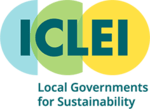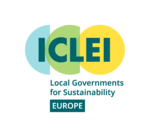UrbanByNature is expanding its current scope of action

The UrbanByNature program can be the vehicle between science and policy-making for the mainstreaming of NbS. The 7-steps integrated management cyclical approach, based on the international standard ISO 37101 “Sustainable development in communities”, was set up to support local governments, groups of technicians, associations, privates and public entities, address the full cycle for analysing barriers and opportunities, achieving action, and acceleration of action.
Capacity-Building is at the heart of overcoming current policy, governance, finance and technical challenges, hindering the implementation of NbS for sustainable development. H2020 and HE projects have supported identifying gaps and links between local, regional, national and pan-European multi-level stakeholder governance frameworks, building the basis for the recommendations on EU regulation and planning policies strategies (e.g. Water Framework Directive, Floods Directive, Biodiversity Strategy, Soil Strategy, Urban Greening Plans, etc.).
Involving policymakers, practitioners, civil society, organisations, local authorities, water authorities, businesses and investors is part of building capacities and gaining more practical experience, to analyse, act and accelerate action, and is part of our NbS and Biodiversity Team and ICLEI vision and mission.
New free and open source visualisation and modelling digital tools, updated unified manuals and guidelines for NbS technical design, construction, operation and maintenance, and innovative cost-benefit evaluation methods and financial models are produced under the umbrella of EU-funded H2020 and Horizon Europe projects. Aren’t they a resource for society to become more resilient and well-adapted to sustainable challenges? And, if so, wouldn’t it be incongruent that, after the completion of those projects, EU-funded resources remain unused and in the shadows? Our UbN Integrated Management System consisting of 7 steps for a full cycle of analysing barriers, achieving action, and acceleration of action wants to answer what, to whom and how to communicate those results and make them usable.
But for this analysis to converge into a significant change, to translate into action, we need assessing pathways that develop guidance to local and regional policymakers. Those cannot remain in the shadows after the lifespan of the projects. Rather, science needs to be translated and communicated to society. Mainstreaming NbS in planning policy and effective implementation is the aim and the UrbanByNature program our vehicle. Our Integrated Management System consisting of 7 steps try to address the full cycle for analysing barriers, achieving action, and acceleration of action.
As an example, giving access to the H2020 and HE cost-effectiveness software tools developed by high-level scientists to our city-makers and practitioners, training them on how to use those for visualising the environmental problem, identifying possible scenarios (with the implementation of NBS), and modelling the results from adopting those in a middle-to-long term perspective, can make a substantial change towards effective decision-making.
UrbanByNature aims at facilitating NBS replication across European regions, supporting the Green Deal, the implementation of Urban Greening Plans, the Berlin Urban Nature Pact, Nature Restoration Law, Biodiversity strategy for 2030 and Mission Restore our Ocean and Waters by 2030. Build on user stories, engage with users interested in testing tools, facilitate a co-design framework to understand the common needs addressed by local decision-makers in rural, peri-urban, and urban regions, different land-use patterns, wastewater effluents, and potable water demands, and put at their service training modules that truly answer their capacity-building needs.
Our future within this platform is to approach scientists to decision-makers, finding the matches between scientists, practitioners, entrepreneurs, students, educators, private facilities, and politicians. We are working on a plan for bringing tailored contents, and the most suited training and exchange format.
We look at the future of this program to exploit current EU project results through service delivery of training modules, adapted to local and regional challenges. ICLEI, with its multi-level stakeholder engagement and participatory activities experience, wants to act as intermediating to maximise the impact and increase the full replication and up-scaling potential of NBS developed by our EU-funded projects, assessing the question: what comes next for the mainstreaming of NBS?
As a program that is bridging between science, policy-making, and civil society, we invite you to register, participate in our public training events, express your needs, and explore with us customised training services of your need.

Our partners












The UrbanByNature programme is funded by the Horizon 2020 Framework Programme of the European Union under Grant Agreements No. 730222 and No. 776604. It has received funding for an update by the Horizon Europe Programme under the Grant Agreement No 101003818. The sole responsibility for the content of this website lies within UrbanByNature and in no way reflects the views of the European Union.